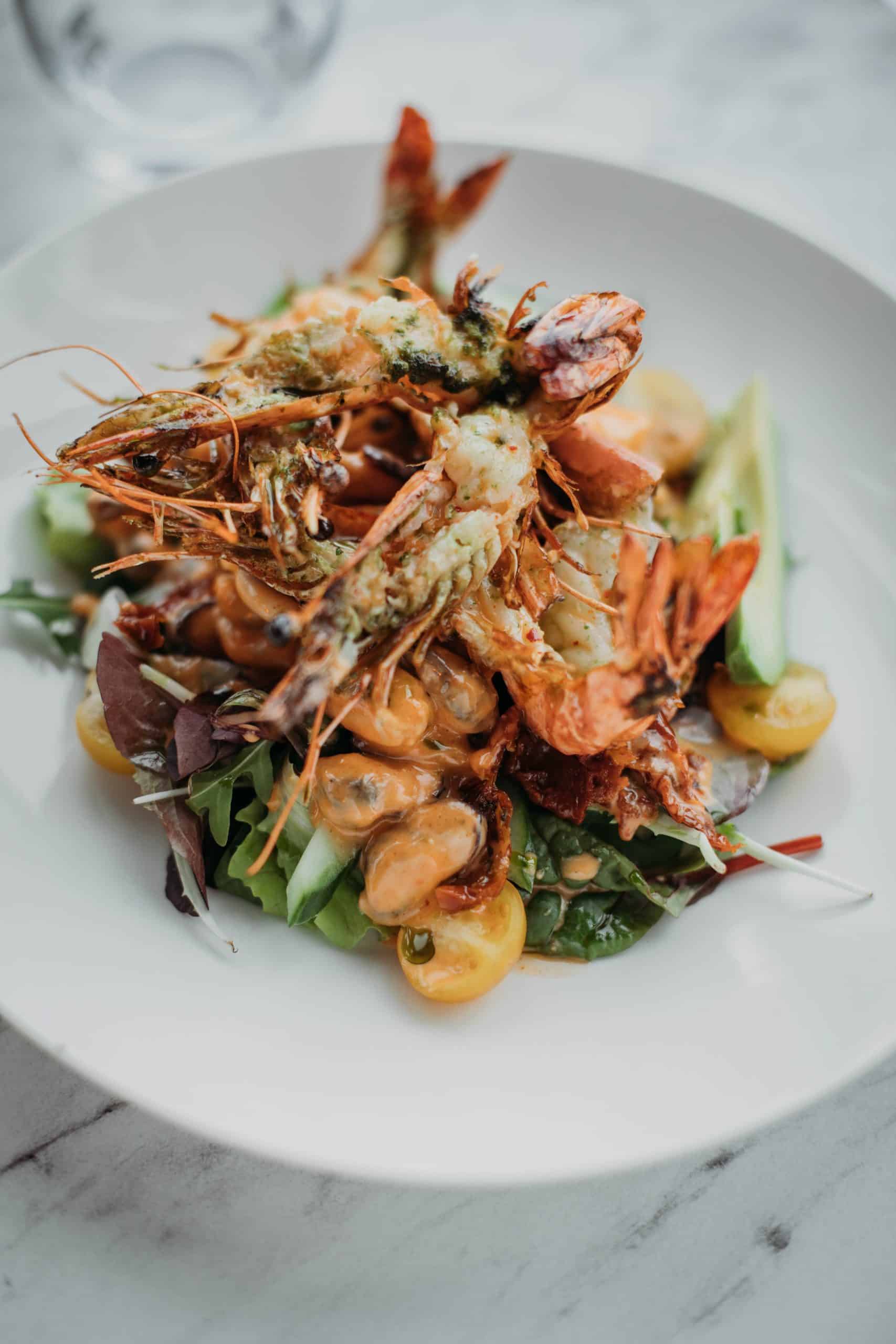The Mediterranean diet, or Mediterranean way of eating, is based on the traditional diet and lifestyle of cultures that live around the Mediterranean Sea. While many Americans associate it with Greek and Italian cuisine, it also draws from the diet and lifestyle of some Spanish, North African and Middle Eastern cultures. But it’s important to remember that the Mediterranean diet is based on dietary and lifestyle practices, not cuisines, and its core principles can be applied to ingredients and flavors from all over the world.


Principles of the Mediterranean diet
My goal here is to not get too much into the nitty gritty of the Mediterranean diet. Information about how it works and why it is a healthy choice is basically everywhere, and I've included some trusted sources at the bottom of this page. But it's fairly simple to provide an overview of the basic principles, which are:
- Regular physical activity and an active social life.
- Proportionally high consumption of extra virgin olive oil, vegetables and greens, fruits, legumes, and whole grains.
- Fish and seafood feature prominently as protein sources, and poultry, nuts and seeds, red wine, and fermented dairy are consumed with thoughtful moderation.
- Red meat, sweets, and refined grains are consumed rarely, and often saved for special occasions.
For the visual learners among you, the Mediterranean diet is often represented as a food pyramid.
As you may have surmised, the traditional Mediterranean diet barely resembles the fat and calorie-laden Greek and Italian dishes found in American restaurants and kitchens. In fact, some of the communities that the Mediterranean diet is based on lived in conditions bordering on poverty. The people in these areas ate what was available, which was what they could grow themselves, or forage from the land and the ocean. This reliance on earth and sea is heavily reflected in the Mediterranean food pyramid.
The thing that first drew me to the Mediterranean diet is the fact that it is not restrictive or prescriptive. Unlike many popular diets, it involves little or no discussion of what foods are “allowed” and “not allowed,” which is an aspect of modern diet culture that I have always struggled with. In the Mediterranean diet, some foods are prioritized over others, but nothing is forbidden.
Parsley & Parm's approach
While creative inspiration doesn’t always strike in the exact proportions laid out in the Mediterranean food pyramid, my intention is to follow them roughly, which is basically how I eat. As I build my library of recipes, you will find plenty of fish and vegetables, lots of salads and veggie-loaded soups, legumes, and whole grains. I use olive oil almost exclusively, and lots of it. Nuts, seeds, and herbs show up frequently as toppings, but only where they truly add to the enjoyment of a dish.


And yes, you will find the occasional splurge in the form of red meat or a decadent dessert. While I sometimes eat meat as a main course, more often it will serve as an accent flavor (like the bacon in my BLT Kale Caesar). I also try to make desserts centered around seasonal fruits, though I do really love dark chocolate, so I’m sure that will work its way in too.
All this to say, my intention is to be a resource rather than a reference for the Mediterranean diet. More than anything, I would like Parsley & Parm to be the place you come to find recipes you enjoy the heck out of and that you know will be healthy, whether you choose to eat a Mediterranean diet or not. But for those of you who want or need to follow a more structured diet, I'm happy to point you in the right direction.
Further reading
I am not a dietician or a medical professional, so I have relied on information provided by the following organizations (among others) in crafting my approach to eating and my recipes on Parsley & Parm. As a writer, I always concern myself with the quality of my sources, and I am confident in the expertise and knowledge behind the sites listed here.
Oldways
Formed in 1990, Oldways is a non-profit organization that has long been one of the Mediterranean diet's greatest champions. Their website is an exhaustive source of information on food and nutrition, focusing on heritage diets from around the world. It includes a searchable database of scientific studies and articles about the health benefits of various diets and their ingredients. This should be bookmark #1 for anyone interested in the Mediterranean diet.
Mediterranean Living
Mediterranean Living was founded by a registered dietician, and the organization's web site is an excellent, well-structured resource for learning about the Mediterranean diet. I have used it as a reference since the early days of my interest in the Mediterranean way of eating. This site offers a well-written guide for beginners, a list of preferred foods, meal planning help, classes, and recipes.
Diane Kochilas
Diane Kochilas is the queen of Greek cuisine and one of my culinary idols. Her cookbook, Ikaria, is sitting next to me as I write this page. I've read it cover-to-cover multiple times, caught up in how she tells the story of a place and its people through food. I'm a long time subscriber to Diane's newsletter, her YouTube channel, and just generally a huge fan. Attending one of her cooking classes on Ikaria is near the top of my bucket list.
American Heart Association
As someone who comes from a family with a history of cardiovascular disease, I've had this page bookmarked for many years. The American Heart Association's dietary recommendations align pretty closely with the Mediterranean diet, and their web site is chock full of information and resources for how to eat to improve heart health.

